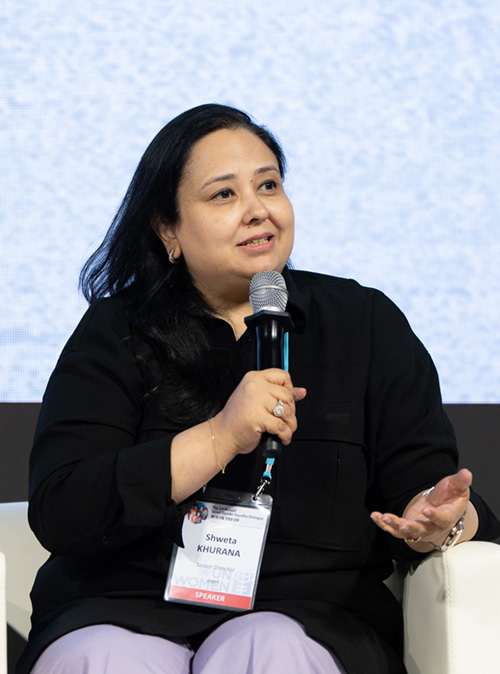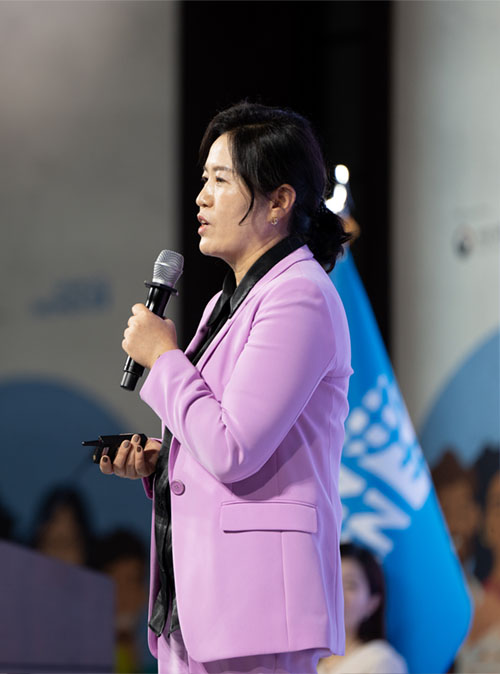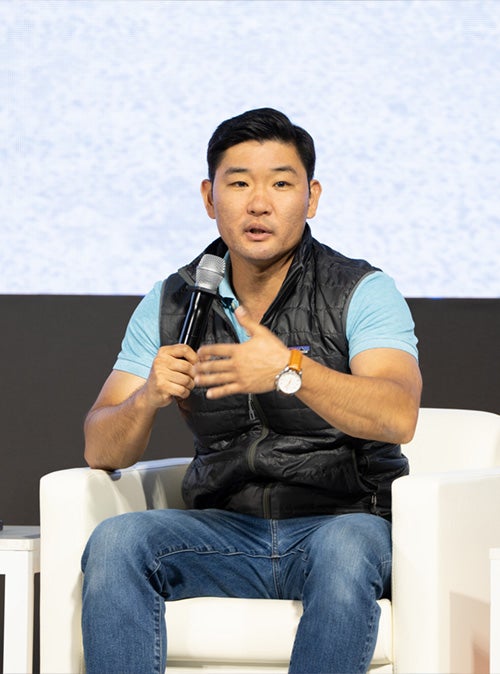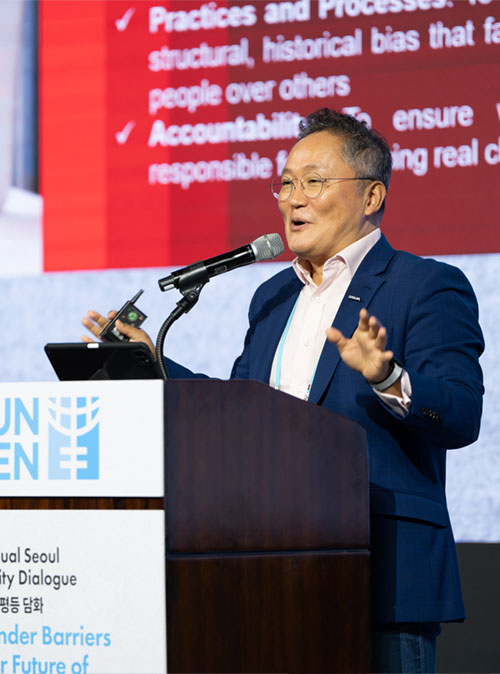Authors: Sohee Kim and Ahjung Lee
English | 한국어
Seoul, Republic of Korea — According to the ‘Global Gender Gap Report 2023’ by the World Economic Forum, the percentage of women in leadership positions as of 2022 was 16 per cent in the Infrastructure industry, 28 per cent in the Technology, Information, and Media industry, and 32 per cent in the Financial Services industry. This under-representation of talented women hinders gender equality, innovation, and prosperity. Increasing women in under-represented industries is therefore not just a “women’s issue,” but an economic imperative.
This was the central message of ‘the 1st Seoul Gender Equality Dialogue: Breaking Gender Barriers for a Better Future of Key Industries,’ organized by the UN Women Centre of Excellence for Gender Equality (the Centre) in the Republic of Korea on November 2.
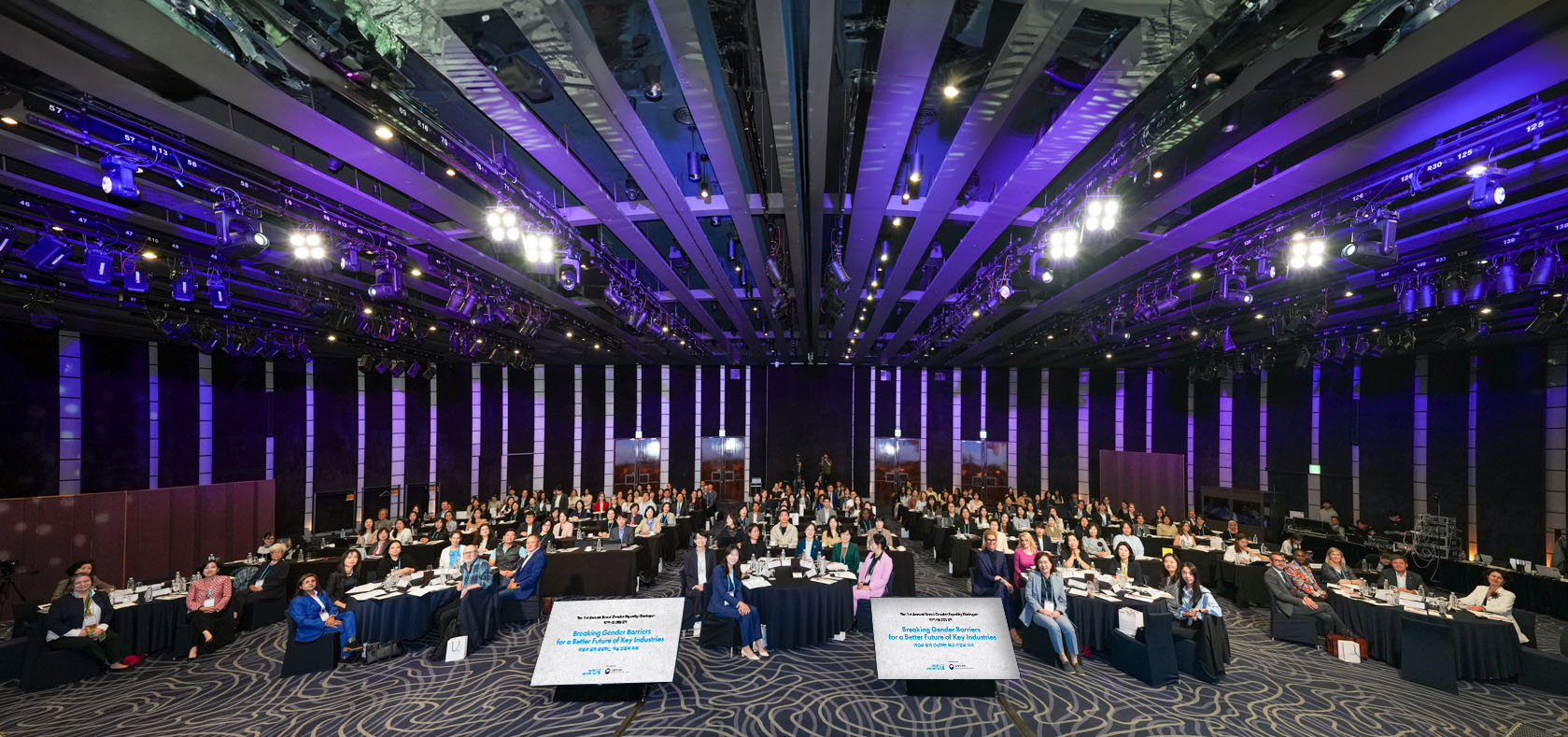
Over 300 participants joined the 1st Seoul Gender Equality Dialogue: Breaking Gender Barriers for a Better Future of Key Industries. Photo: UN Women/Hanju Lee
As Kyunghee Kim, Deputy Minister of Economy and Finance of the Republic of Korea, stated: "Increased women's participation and leadership in key industries contributes not only to women’s economic empowerment in terms of career advancement and income growth, but also to the national economy, where an influx of talent, regardless of gender, is needed in key industries, particularly due to the low birth rate and aging demographics in Korea.”
Indeed, a 2018 report by the Boston Consulting Group found that diverse companies produce 19 per cent more revenue. McKinsey & Company also revealed in 2020 that companies ranked in the top quartile for gender diversity in executive teams were 25 per cent more likely to have above-average profitability than companies in the bottom quartile. In other words, gender equality means better business.
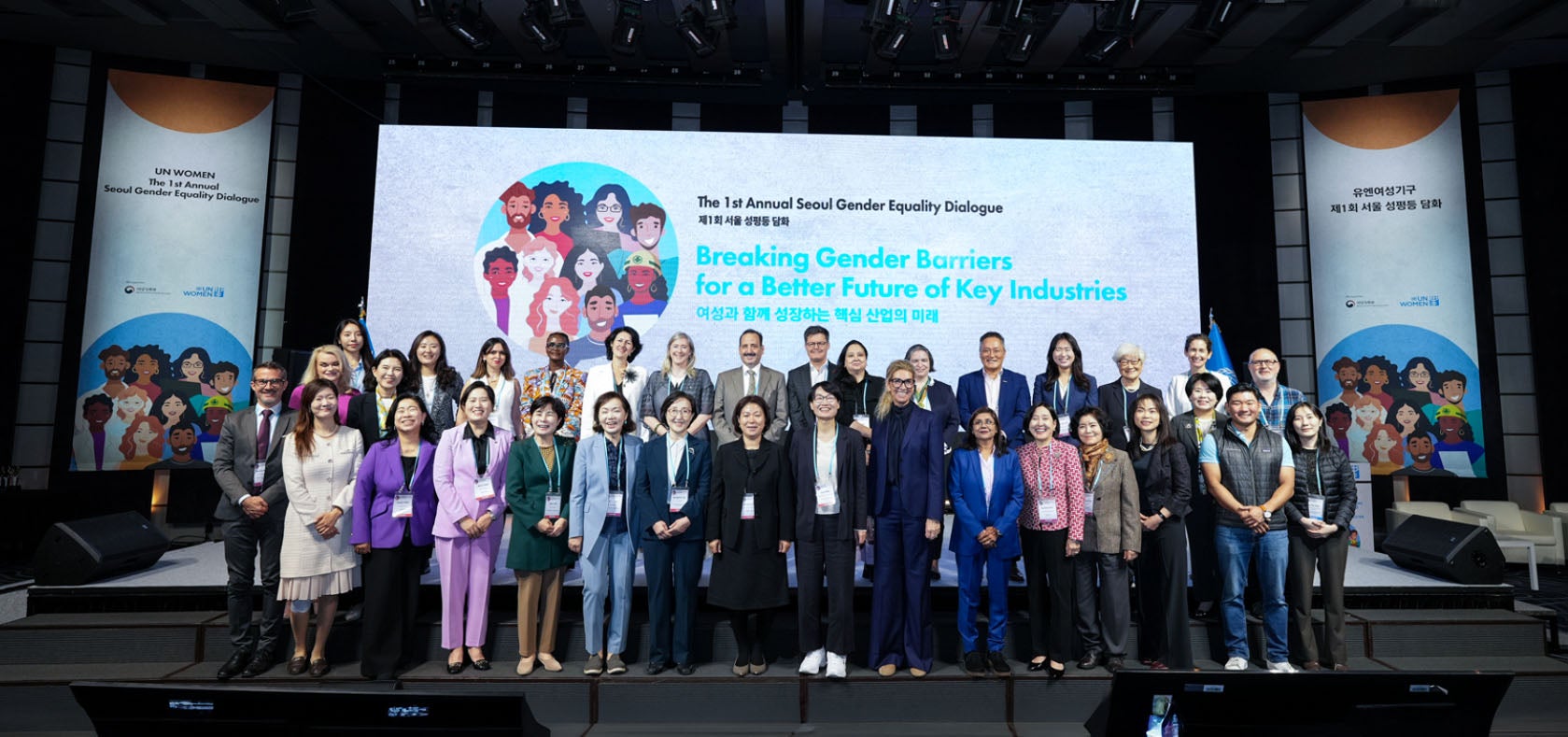
Participants in the 1st Seoul Gender Equality Dialogue: Breaking Gender Barriers for a Better Future of Key Industries’ hosted by UN Women Centre of Excellence for Gender Equality in the Republic of Korea. Photo: UN Women/Hanju Lee
Global big firms’ advice: “Fix the system, not the women.”
The Dialogue presented a discussion among big global firms on how to create an enabling environment for nurturing future women leaders in key industries.
Shweta Khurana, Senior Director, Asia Pacific Japan Government Partnerships and Initiatives, International Government Affairs Group of Intel; Misun Ahn, Vice President at Posco E&C; Mike Kim, Head of Google for Startups, APAC; and John David Kim, Head of North East Asia at the GSMA (from the left). Photo: UN Women/Hanju Lee
Shweta Khurana, Senior Director, Asia Pacific Japan Government Partnerships and Initiatives, International Government Affairs Group of Intel, highlighted the importance of expanding and attracting the talent pool in the technology industry by enhancing in communities digital readiness skills specifically for young women and girls. “Such proactive efforts,” she explained, “have enabled the Tech industry to recruit more female talent and close the digital gap for women’s empowerment.”
The importance of providing institutional and policy support was also emphasized, in order to enable women to achieve the work-life balance and stay employed in the industries throughout their life-cycle challenges. Misun Ahn, Vice President at POSCO E&C, recounted how her company granted her a leave of absence when she was about to resign due to childcare pressures and how this arrangement allowed her to return to the office after 1 year and contribute much more in the years to follow.
At the Seoul Gender Equality Dialogue, discussions did not only focus on women, but also highlighted how men could play their part in changing the system to become more inclusive. According to Gary Ford, co-founder of Men for Inclusion, such an effort is not only good for women, but also for men in very concrete ways: "For instance, gender inclusive teams are happier, less likely to take sick leave, and more likely to seek professional or personal help when needed.”
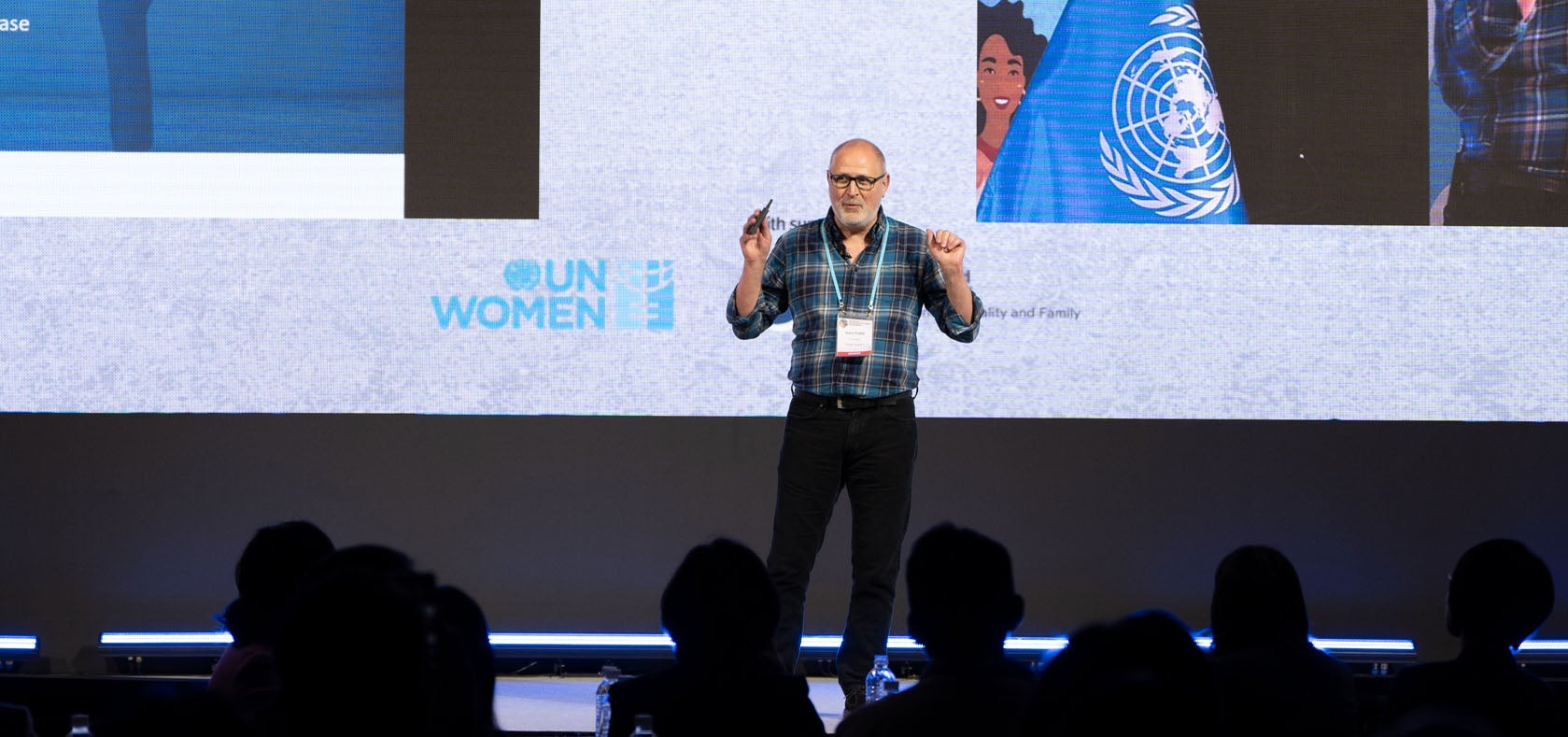
Gary Ford, co-founder of Men for Inclusion presents strategies to mobilize the silent men majority. Photo: UN Women/Hanju Lee
As a former Managing Director at JP Morgan Chase, Ford co-founded his company’s male allies programme, which was rolled out to thousands of men in the UK, US, Singapore, India, and Argentina. More recently, he co-founded Men for Inclusion which delivers workshops that help men grow as inclusive leaders across multiple sectors, including finance, energy, higher education, technology and public service sectors. Ford explained how we need to mobilize the silent male majority and tackle what he calls “accidental sexisms”, that most men are not aware of, explain how these gender biases disadvantage their female colleagues and discuss strategies on how to disrupt them.
The discussion also touched upon the role of startups in terms of disrupting the status quo and changing the mainstream culture of the tech industry. Mike Kim, Head of Google for Startups, APAC, outlined Google’s support for women-led artificial intelligence startups, and explained how flexible work hours could become normalized through such startups. During the discussion, he also highlighted how work-life-balance measures are no longer a “luxury” only large firms can afford, but a “must” for spurring performance and innovation for all companies in today’s market.
John David Kim, Head of North East Asia at the GSMA, emphasized the importance of having a clear measure of accountability from the top, accompanied by a transparent reporting system, for making a sustainable move towards gender equality and inclusivity. “After our CEO and Director publicly made GSMA’s commitment to the UN’s Sustainable Development Goals, we really went through a transformation and started to make a very rapid progress on gender equality,” he explained.
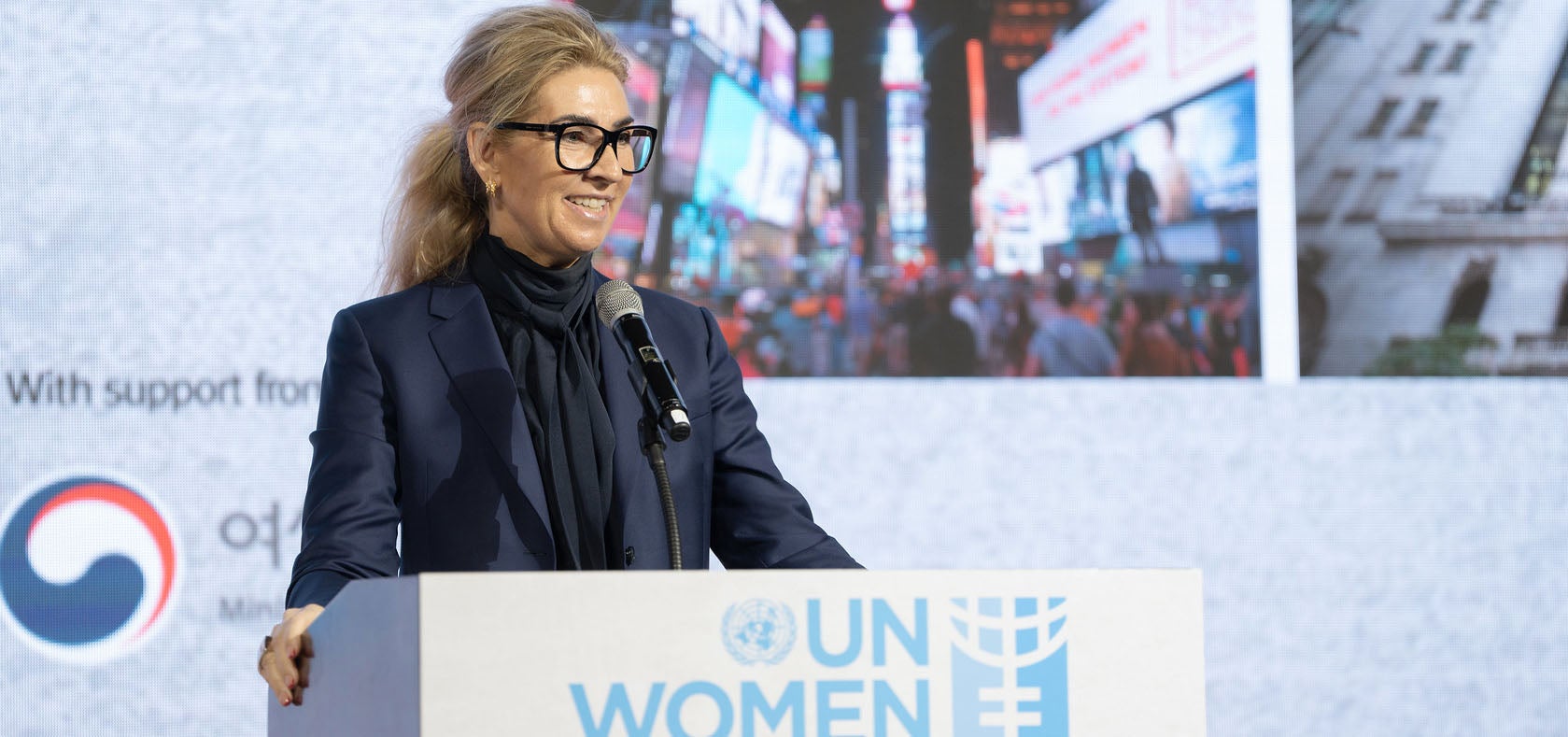
Benja Stig Fagerland, Founder of SHEconomy® emphasizes the message “Fix the system, not the women.” Photo: UN Women/Hanju Lee
All in all, the Seoul Gender Equality Dialogue sent out a powerful message to the Korean audience that increasing representation of women in key industries is a business and economic imperative, and that women can perform just as well as men despite long-lasting gender stereotypes in sectors traditionally led by men.
As summarized by Benja Stig Fagerland, Founder of SHEconomy® (a fusion of the pronoun ‘SHE’ and ‘Economy’) and Keynote Presenter at the Dialogue, “It’s time to shift the focus from making women prove their worth to dismantling systemic barriers … The time has come to change our focus from fixing women to mending the very system itself.”


